
Parrot Waxcap (Hygrocybe psittacina) Parrot Waxcap (Hygroc… Flickr
Parrot Waxcap Home / Mushroom Guide / Parrot Waxcap ( 25 votes, average: 3.92 out of 5) Parrot Waxcap Inedible Autumn Summer Winter View Full Size Image Young mushrooms are usually deep bottle green. A spectacular mushroom with varied colours, mainly between green, yellow and blue with a shiny, slimy cap and stem.

Parrot Waxcap Mushroom Is It Edible? ForagingGuru
Fungus Fact #146: Gliophorus psittacinus, the Parrot Mushroom by Thomas Roehl · Published March 16, 2018 · Updated March 23, 2018 Gliophorus psittacinus, the Parrot Mushroom, is easy to identify based on its green color (at least when young), slimy stipe, and slimy gills. Photo by Alan Rockefeller [ CC BY-SA 3.0 ], via Wikimedia Commons.

Slimy but spectacular, meet the glorious Parrot Waxcap Mushroom
Commonly referred to as the Parrot Waxcap, this colourful mushroom appears in summer and autumn on roadside verges, in cropped grassland and in churchyards. Gliophorus psittacinus (syn. Hygrocybe psittacina) is an indicator of grassland quality, appearing on lawns only after years of low-nutrient management.

Slimy but spectacular, meet the glorious Parrot Waxcap Mushroom
70 datasets have provided data to the NBN Atlas for this species. Browse the list of datasets and find organisations you can join if you are interested in participating in a survey for species like Gliophorus psittacinus (Schaeff.) Herink. Gliophorus psittacinus (Schaeff.) Herink. Hygrocybe psittacina (Schaeff.) P. Kumm. synonym.

Parrot Waxcap
Additional common names include parrot waxcap and parrot toadstool. Despite all the avian references, this beautiful mushroom is definitely not for the birds. Parrot mushroom (Gliophorus psittacinus), beautiful cluster emerging from the forest floor. Focus-stacked composite of 21 three-second exposures under diffused natural light.

The Parrot Waxcap Mushroom ferrebeekeeper
Parrot waxcap mushrooms are beautiful and rare fungi that can only be found in particular woodland habitats, usually growing in the moss or grass between trees or under shrubs. These mushrooms do not thrive in disturbed or managed environments, so they're easier to find if you wander in the right spot.

Parrot Waxcap
Sometimes called the "parrot mushroom," this little guy is unmistakable if you catch it in its early stages of development, when it is distinctively parrot-green (and decidedly slimy). But it quickly begins to change colors, turning yellow or orange, and then fading to a sort of dingy straw color.

Parrot Waxcap
November 13, 2011 Meadow waxcaps (Cuphophyllus pratensis), Crimson waxcaps (Hygrocybe punicea), Snowy waxcaps (Cuphophyllus virgineus), Scarlet hood (Hygrocybe coccinea), Parrot waxcap (Hygrocybe psittacina), Ballerina waxcap (Hygrocybe calyptriformis) Waxcaps in the hillss above Borrowdale, Cumbria
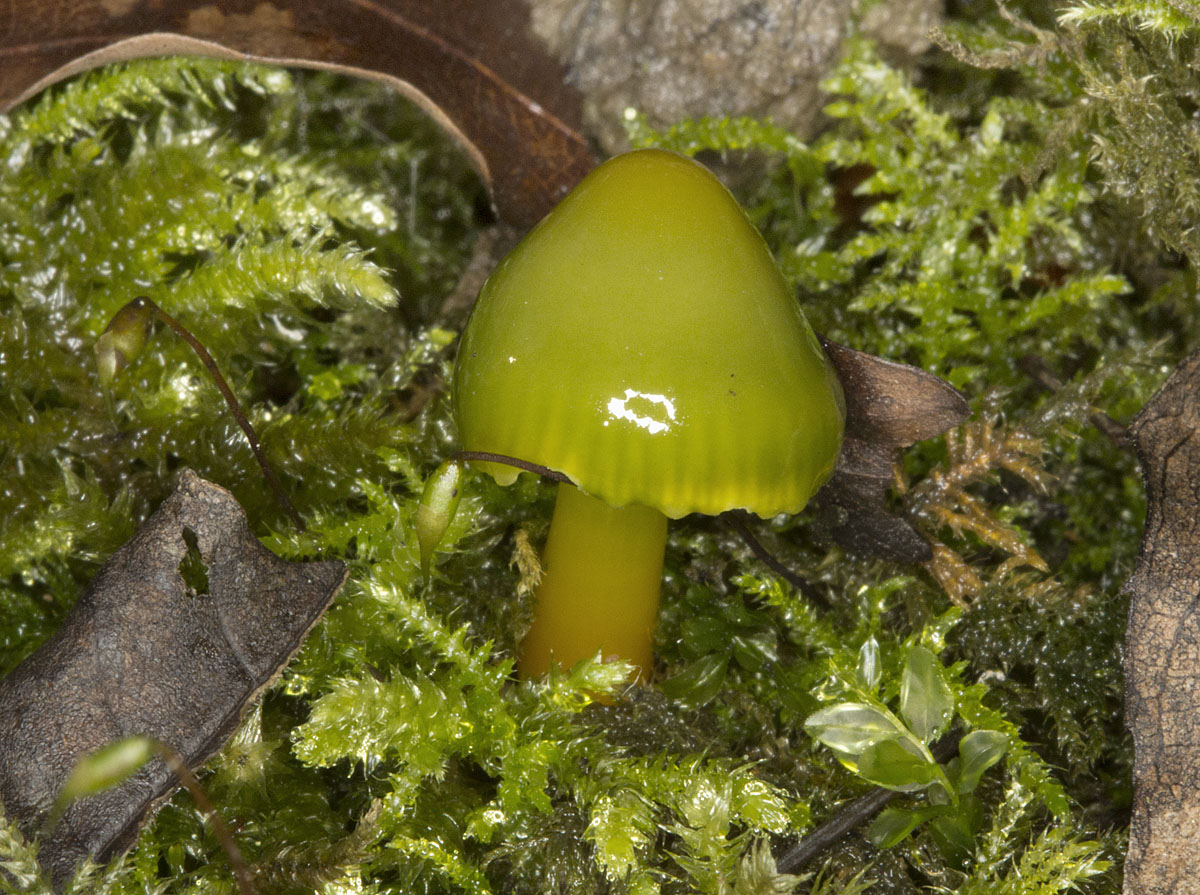
Parrot Waxcap Naturally
The parrot waxcap mushroom, scientifically known as Hygrocybe psittacina, is a sight to behold. Its cap boasts a striking array of colors, ranging from vibrant green to yellow and even rusty orange, making it a visual delight for any mushroom enthusiast.

Parrot Waxcap Mushroom A Comprehensive Guide For 2023 BIRD LOVER
The Parrot Waxcap is an amazing mushroom with great variation in colour! greens, blues and yellows can all be found on this particular mushroom! Scientific Name Hygrocybe / Gliophorus psittacinus Family Hygrophoraceae Habitat In unimproved grassland like fields and pastures or graveyards also known to occur in damp open woods. Description
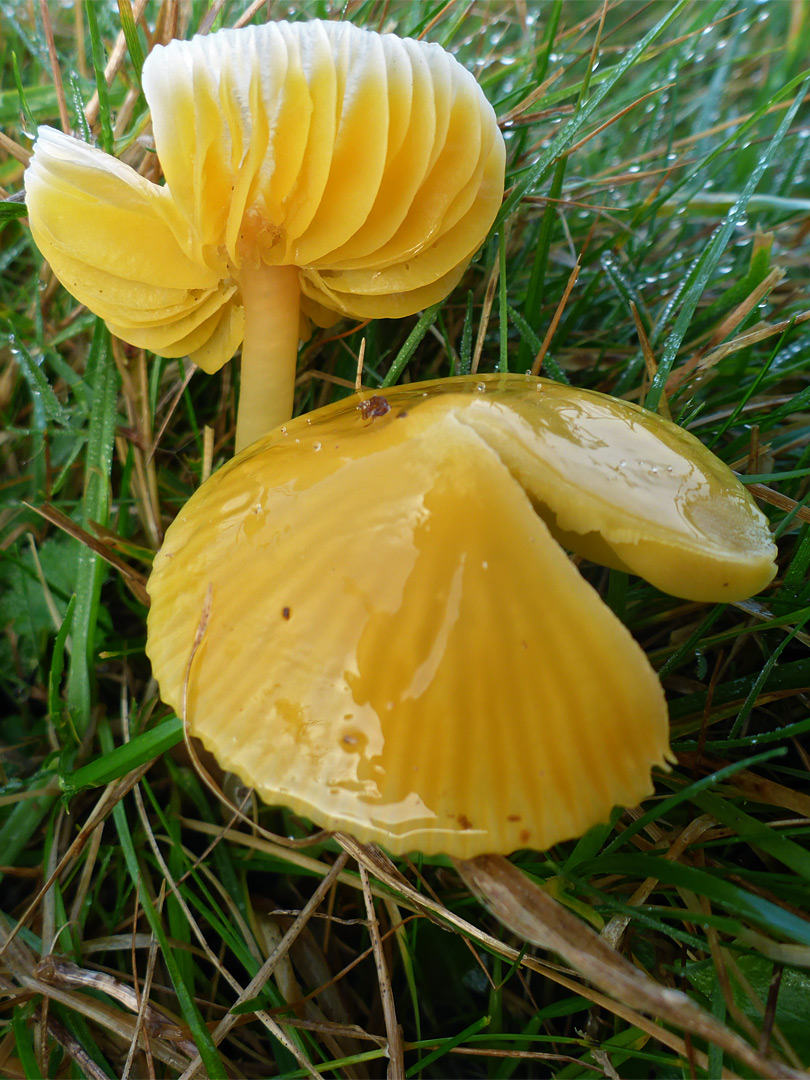
Photographs of Sand Point and Middle Hope, Somerset, England Parrot
Can you eat Parrot Waxcap Mushroom? It's not recommended to eat Parrot Mushroom. While the Parrot Waxcap fungi are edible, they taste slimy and are unlikely to add flavor to your food. Experts do not classify the Parrot Waxcap as a hallucinogenic mushroom, and no widely recognized reports confirm that it contains psychoactive substances.
A Beautiful Green Parrot Waxcap Mushroom r/Damnthatsinteresting
Gliophorus psittacinus (Parrot waxcap) You may have seen pictures of the parrot waxcap in field guides or on other websites before. It probably didn't look anything like what you see here. I initially thought that this mushroom might have been Hygrocybe conica (the blackening waxcap) and that the greenish areas were bruising.
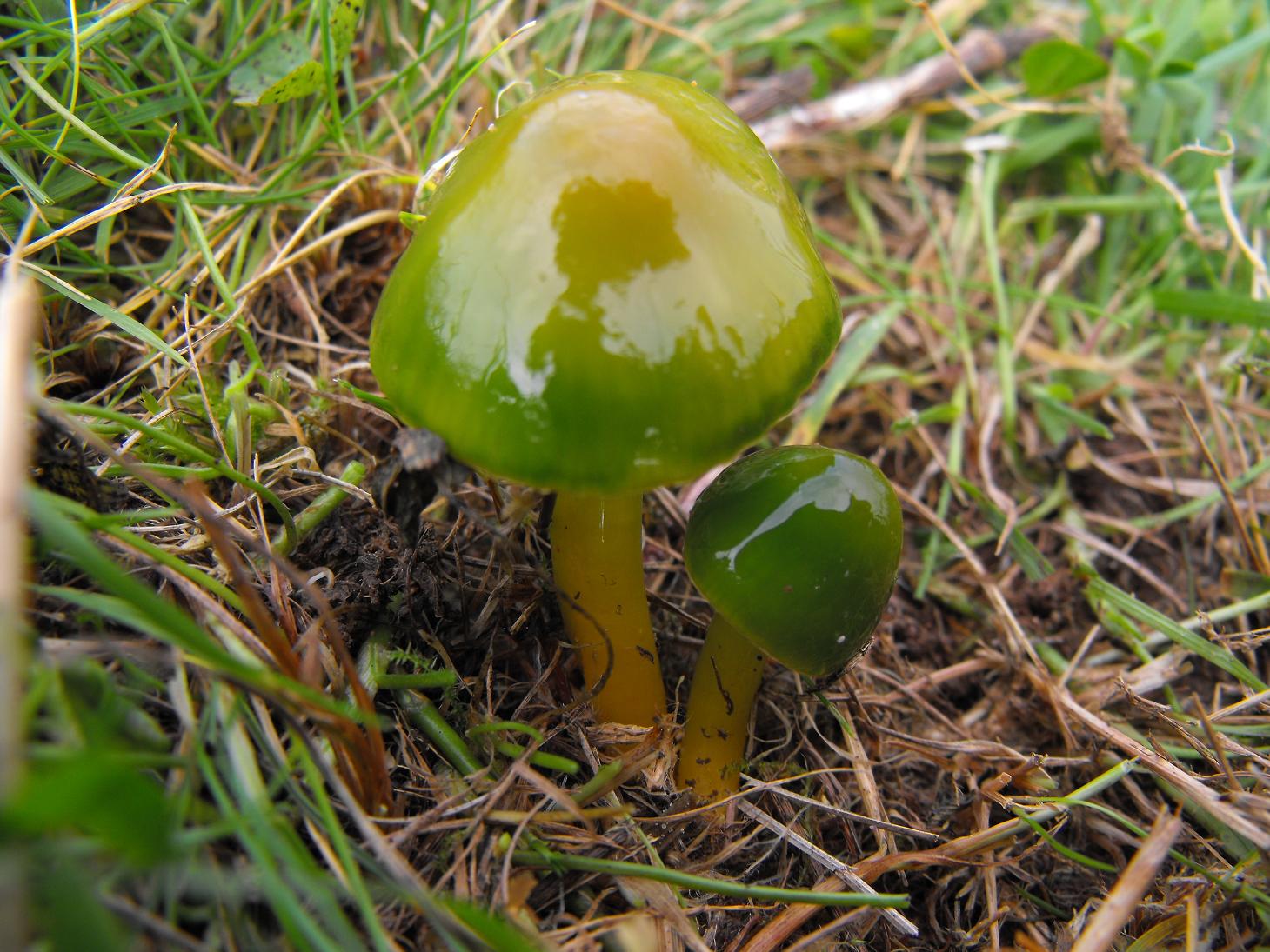
parrot waxcap Galloway Wild Foods
August 10, 2023 Due to the eye-catching appearance of the Parrot Waxcap Mushroom, most Mushroom lovers often raise the question about its psychedelic properties. Generally, the Parrot Waxcap Mushroom is not psychedelic, as it does not contain psilocin and psilocybin, the main compound in psychedelic Mushrooms.
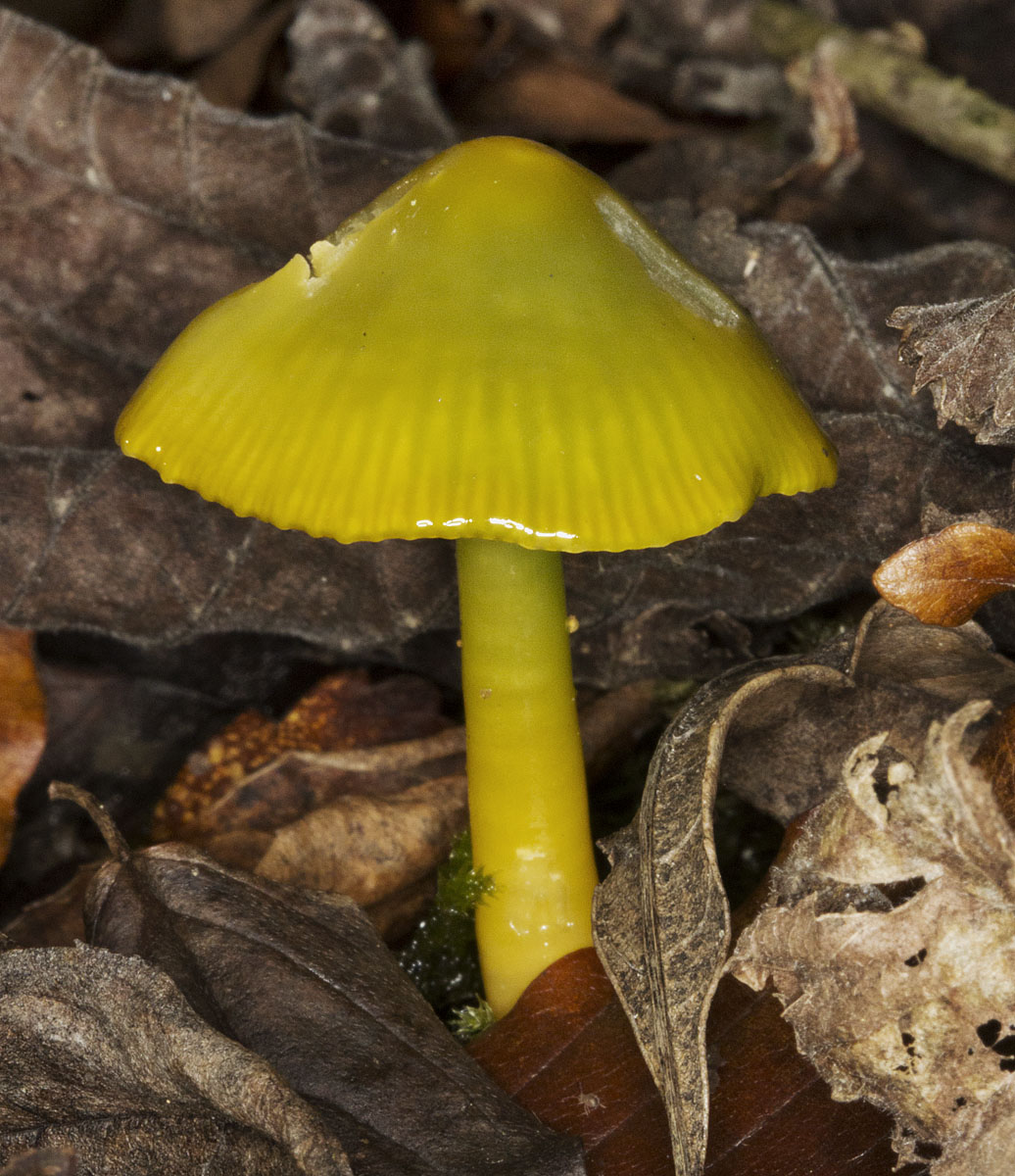
Parrot Waxcap Naturally
Parrot Waxcap Status: Widespread. From the Greek Glio - meaning glue, and phoros - meaning bearing, glue bearing is a reference to the slimy nature of the mushroom. Cap: 1-4cm Stem: 2-5cm Meaning Parrot. Description A wonderfully coloured mushroom when young with rich greens and yellow, become more yellow with age.

Parrot Waxcap
Old-man-of-the-woods 9. Strobilomyces strobilaceus. Cornflower Bolete 10. Gyroporus cyanescens. Russell's Bolete 11. Aureoboletus russellii. Purple-veiled Slippery Jack 9. Suillus luteus. Chicken Fat Mushroom 12.

Parrot Waxcap Mushroom A Comprehensive Guide For 2023 BIRD LOVER
What You Should Know Gliophorus psittacinus Mushroom Identification Gliophorus psittacinus Taxonomy and Etymology What You Should Know Gliophorus psittacinus is a spectacular mushroom with varied colors, mainly green, yellow, and blue with a shiny, slimy cap and stem. Gills waxy, well-spaced, and green when young.